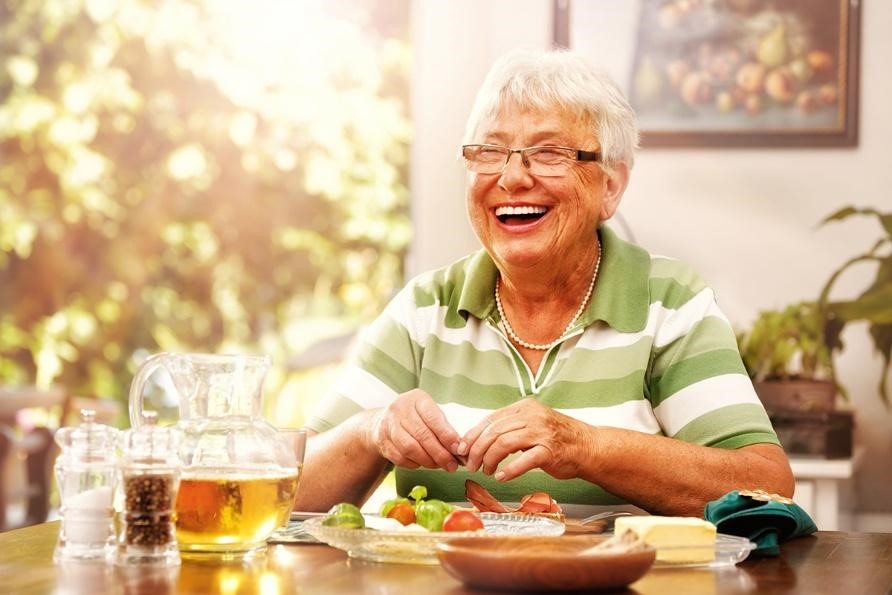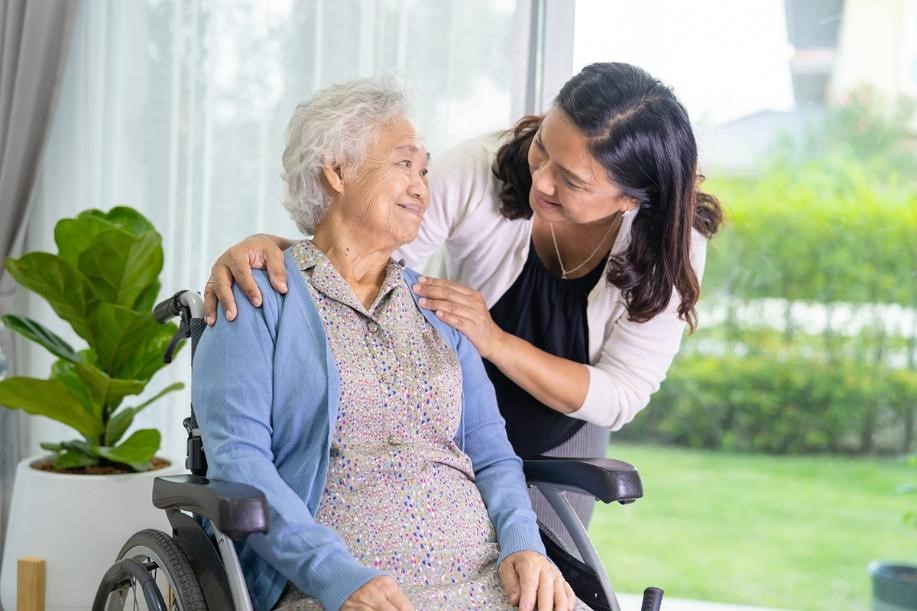
The Importance of Flu Prevention in the Elderly
Elderly people are especially vulnerable to viruses like the flu because they have weaker immune systems. According to the CDC, between 50 and 70 percent of flu-related hospitalizations occur among people over the age of 65, and flu can even be fatal for seniors with compromised immune systems.
Because the flu carries such high risk for the elderly, flu prevention should take high priority not only for seniors themselves, but also for caregivers and family members who may carry germs.
19 Flu Prevention Tips to Help Minimize Risk
- Get vaccinated. Health care providers say getting a flu shot is the single most important thing you can do to reduce the risk of getting the flu. If your loved one is enrolled in Medicare Part B, there will be no out-of-pocket cost for the shot. It’s best to get a flu shot early in the season, but even if you wait until January or February you can effectively reduce your mom or dad’s risk.
- Ask all caregivers to be vaccinated. Flu shots are only 70-90% effective because they cannot account for the new strains that may develop each season, so your loved one may still get the flu even if they have had a shot. For that reason, it’s wise for everyone who interacts with your mom or dad routinely to get a shot, including caregivers and family members.
- Wash your hands frequently for at least 20 seconds. Plain soap and water work just fine, as long as you scrub your hands together for 20 seconds or longer. Wash after going out to a public place, before meal prep or eating, and after interacting with other people.
- Use hand sanitizer. If you are in a place where you can’t wash your hands, clean them with hand sanitizer. This is also a good solution for seniors who struggle with walking or getting up out of a chair.
- Cover your mouth with a tissue when you cough or sneeze. Flu is highly contagious and is spread by droplets when you cough or sneeze. These droplets land on surfaces and can survive there for up to twenty-four hours. You can reduce the risk by covering your nose and mouth with a tissue when you cough or sneeze and throwing the tissue away immediately.
- Wash hands immediately after coughing or sneezing. Don’t wait to sanitize your hands! You can spread germs quickly by touching surfaces or interacting with your mom or dad after coughing and sneezing.
- Sanitize door knobs. Because door knobs are among the most frequently touched surfaces in the home, they are a prime spot for flu germs to take up residency. Sanitize them everyday, or multiple times throughout the day if someone in the home shows signs of the flu.
- Sanitize phone receivers. Phone receivers are another trouble spot since they are used in close proximity to your mouth. Sanitize receivers frequently, and if someone in the house has the flu, sanitize the receiver after every phone call.

- Avoid touching your eyes, mouth, or nose. Because flu is spread through droplets, touching your eyes, mouth, or nose is a prime way of sharing germs. Even if you aren’t sick, you may have picked up a flu germ from the cart handle at the grocery store or from a handrail at your office which can then be introduced into your system when you rub your eye.
- Avoid crowds when possible. During flu season, it may be best for your elderly family member to avoid places like malls, stores, and church services. That’s especially true if there has been a known flu outbreak in your area.
- Sanitize your mobile phone or tablet. Mobile phones, just like standard phone receivers, are prime carriers for germs because they are handled frequently and used near your mouth. Tablets should also be cleaned regularly since they are touched often and may pick up germs.
- Emphasize good nutrition. While nutrition and vitamins can’t fight off a confirmed case of the flu, healthy eating choices can promote a strong immune system and improve overall health.
- Drink plenty of water. Drinking water keeps your body hydrated, which helps your nasal passages stay moist so they can trap germs as they are designed to.
- Wipe down your loved one’s computer keyboard and mouse. A computer keyboard and mouse is another perfect spot for flu germs to take up residence. Sanitize them regularly, especially if anyone in the home has been around someone with the flu.
- Sanitize faucet handles in the kitchen and bathroom. We don’t often think of faucet handles as carriers of germs because we associate them with washing our hands. But if you turn on the handle with flu germs on your hands, wash, and then touch the handle again as you turn it off, you can still spread the virus. Sanitize faucet handles frequently and use a paper towel to turn off the handle if possible.
- Follow sanitary food preparation guidelines. Wash hands before handling food and avoid cross-contamination by not touching people or surfaces during the process of meal preparation. Encourage your mom or dad to wash hands before they eat.
- Wash hands after being in a public place—even the doctor’s office. The doctor’s office is a hotbed of germs, so be vigilant about sanitizing your hands before and after a visit.
- Stay away from sick people. It may seem obvious, but try not to be around sick people if at all possible. If you know there has been a flu outbreak at work or at your child’s school, sanitize your hands, phone, and steering wheel carefully before visiting your mom or dad.
If your loved one starts to show flu symptoms, talk to your doctor right away. Antiviral flu medications may shorten the length of time your mom or dad experiences symptoms, but they are only effective within the first 48 hours. In the meantime, encourage your loved one to rest and drink plenty of fluids so their body can focus on fighting off the virus.
{{cta(‘6a691ae8-409b-4b09-a1d5-2864ffe1c1b5’)}}






